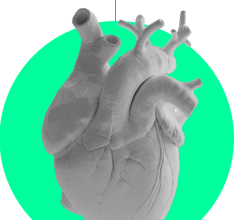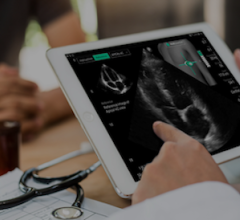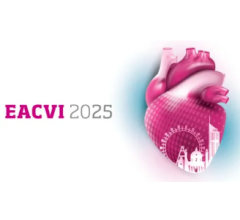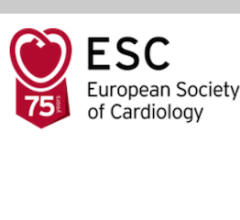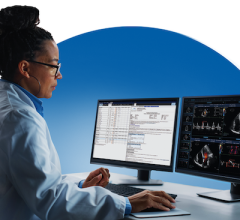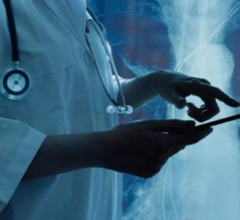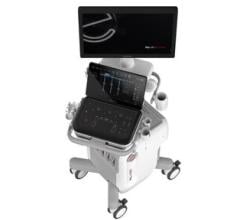
A example of a cardiac MRI exam showing perfusion defects in the heart muscle, amount of infarct and edema and a score for myocardial salvage, which can help determine if revasularization will restore heart function following a heart attack.
October 7, 2019 – A recent study published in the New England Journal of Medicine supports the use of cardiac magnetic resonance imaging (MRI) for improved diagnosis and treatment of patients with chest pain.[1]
The study found cardiac MRI can be an effective test for patients with chest pain as it provides high-quality imaging to help physicians diagnose and determine personalized treatment plans. The MR-INFORM Trial looked at 918 patients with angina and risk factors for coronary artery disease. One group received the standard invasive angiography. The other group received a 40-minute MRI stress perfusion scan to determine whether more invasive angiography was required. In this group, only patients with abnormal cardiac MRI results underwent an invasive study.
The two groups had similar health outcomes, with less than 4 percent of patients in both groups experiencing cardiac events within the following year. However, the group whose treatment was informed by a cardiac MRI scan had significantly fewer procedures, with only 40 percent of this group having invasive angiography. Only 36 percent of the MRI group went on to have revascularization, compared to 45 percent in the other group, showing that cardiac MRI can reduce the need for invasive procedures.
While the study included patients with chest pain, all patients with cardiovascular disease may benefit from a heart MRI. While the use of cardiac MRIs is comparatively higher in Europe, the need for definitive, relevant, accurate and actionable information among U.S.-based cardiologists is imperative., said Chiara Bucciarelli-Ducci, M.D., Ph.D., FESC, FRCP, an associate professor in cardiology/noninvasive imaging at the Bristol Heart Institute in the U.K., a co-author of the study and CEO of the Society for Cardiovascular Magnetic Resonance (SCMR).
“In 2016, more than 800,000 deaths were attributed to heart disease in the U.S., according to the American Heart Association,” she explained.[2] “Heart MRI is one test that can provide many answers for patients by helping physicians accurately identify the underlying causes of heart problems. With a tool that can effectively detect a range of heart issues, we can properly address conditions, some of which can be reversed with proper treatment.”
Although cardiac MRIs are used less frequently in the U.S. than they are in Europe, it will become an increasingly essential tool due to its ability to identify the causes of heart problems due to its extremely detailed view of soft tissue, explained Michael Salerno, M.D., Ph.D., director of cardiac MRI and associate professor of medicine and radiology and medical imaging at the University of Virginia Division of Cardiovascular Medicine. For example, in addition to showing if the heart is not pumping properly, a cardiac MRI helps physicians examine myocardial scarring, which is often key to providing the correct diagnosis.
“Accurate techniques such as heart MRI will increasingly be used to evaluate patients with symptoms of heart disease,” Salerno said. “With Heart MRI’s impressive diagnostic and prognostic capabilities, we anticipate it will play an even more prominent role in evaluating and treating patients in the future.”
By providing comprehensive information on the type and severity of heart disease, cardiac MRIs enable physicians to make more accurate diagnoses and improve treatment for patients. The "Heart MRI" initiative is designed by the SCMR to create greater awareness of the test. The society is the recognized representative and advocate for physicians, scientists and technologists who work in the field of cardiovascular magnetic resonance (CMR) worldwide. With a membership of 3,000 professionals, SCMR is committed to improving cardiovascular health by advancing the field of CMR through education, research, training and clinical excellence.
For more information: heartmri.org
Related Cardiac MRI Content:
Advantages and New Applications of Cardiac MRI
VIDEO: Dedicated Cardiac MRI Use at the Baylor Scott White Heart Hospital — Interview with Haojie Wang, M.D.
How AI Can Unlock Data in CT and MRI Scans
Reference:

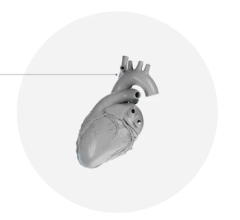
 January 28, 2026
January 28, 2026 
